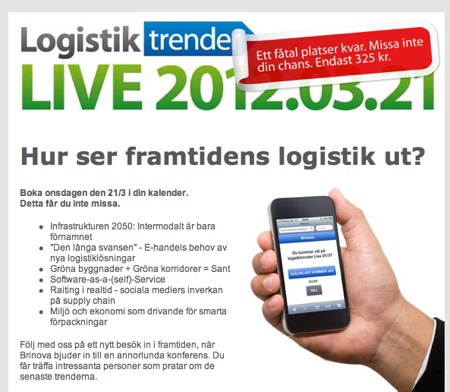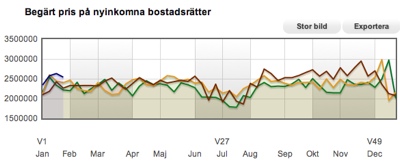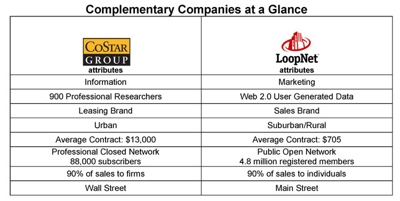Autonomous cars in the wild (in Stockholm)
The number one tech segment written about in 2017 must have been 'autonomous cars'. So much hype, articles and predictions for the future. Therefore, when the chance occurred to actually try one; I couldn't hesitate.
Background
A week ago (on the 24 January 2018) the bus company Nobina started the first test in Scandinavia for autonomous buses on public roads to be used by the public. The two buses are running along a 2 km long street in the Stockholm suburb Kista. This is actually the high tech suburb of Stockholm. The bus is for example running along Ericsson's Head Office.
The buses (model EZ10) are from the French company EasyMile and has capacity of 12 people and a max speed of 40 km/h. However, the ones in beta test in Stockholm are (currently) limited to 20 km/h.
The ride
Recorded a short video from the (smooth and slow) ride.
The future
Will buses (and cars) like this take over in the traffic? And what is the effect for the real estate market? Large questions. I'm sure there will be a large portion of those within 10 years. Especially long haul trucks and buses. However, it always takes longer than one predicts. Furthermore, I don't think there will be less cars in the streets (probably more if its very convenient). However, there will be less parked cars along the streets. Maybe on long term investment could be to purchase parking garages and in the future reuse those for offices/resi...
Further reading
A few links for further reading. About the buses in Stockholm, 5th Wall on the subject, Curbed article, Joe and finally Verge (it's 2018, where are the cars?).
A listed company invites me as a 'blogger'
Last week I did my debut as a speaker, in my role as a 'blogger' (for my employer I've done 100's), at an event held by the Swedish commercial property company, Brinova. (I've done too many speeches to remember in my 'day job' as Product Manager at Datscha).
The event
The focus of the event was 'The future of logistics' (since Brinova mainly owns that type of properties). In other words, not the property market itself. Among the 150+ attendees there were people from all the large players like DHL, Schenker and to customers like IKEA.

The event was, by far, the most tech-savvy 'property event' I've been to. Just to mention two aspects of it, it was live streamed over Bambuser (no quality to talk about but hey, they were trying), and they had the attendees to do polls using their mobile phones (for example what the last topic should be about).

My presentation
I was invited by Brinova's marketing coordinator Jonas Hallström (LinkedIN and @JonasHallstrom) to talk about 'Software as a Service' (SaaS) in general (not commercial real estate specific). An invitation I of course couldn't turn down.
Here are the slides:
(Great slides make no sense without the 'sound'...)
... and from the Bambuser recording.
(I enter the stage at 1h 29m.
Unfortunately, the sound doesn't work until 1h 58m, and hardly even then.)
Sum up
Everything went great and I got lot of positive feedback afterwards.
It seems to have sparked quite a few conversations.
Which was the assignment. ;-)

Huskolla - A new app for the Swedish residential market
Earlier this week I travelled with my family home to my parents place (Karlskrona) to celebrate Christmas (starting with a few days of remote work). To my surprise, the first thing I see opening the local paper (BLT); is a story about a new App (Huskolla) for the residential market! Brilliant.

In the photo: Fredrik Malmros, CEO Infotrader & Nicklas Platow CEO Rapparna.
Background
Even if I was surprised to see the article it came as no surprise when reading about who was behind it. The company InfoTrader has been around for over 10 years creating information services for, among others, the property industry. In cooperation with Rapparna, a newly formed app consulting firm in Karlskrona, they have started the company Huskolla AB which owns the app.
Benefits
First of all the app is free to download from AppStore (an Android version is to be released). After installing the user is able to search among all single family houses and summer houses in Sweden (in total some 2 million properties) by entering an address or using the map.

When clicking on a property an information screen appears.

The data includes:
* property name (id)
* plot size
* building area
* address
* assessment value
* latest change in ownership (price & date)
* Residents name & telephone number
In the menu to the right a number of extra services could be purchased:
* detailed property info (75 SEK ~ 8 Euro)
* value approximation (85 SEK ~ 10 Euro)
* neighbourhood data (49 SEK ~ 5 Euro)
* property boundaries (22 SEK ~ 2 Euro) See screenshot above.
The data covers all single family houses and summer cottages in Sweden.
No commercial buildings or farms.
Of course, it also includes augmented functionality.

My Thoughts
To my knowledge this one of the first services (regardless of App or not) that for the public makes it extremely easy to find the property name, size, assessment data and so on. (There are a number of professional services that shows more detailed info but also demands an agreement from the government to use.) There is a service provided by the Swedish Land Register, but it cost 50 SEK per report and has no mapping functionality.
What I find most interesting is that the name and telephone number is displayed. I've never seen a service (for the public) that displays this data. However, as stated in the App it isn't the 'titled owner', instead it is the registered resident in the building (in Swedish 'folkbokförd'). In other words, this data is not extracted from the Swedish Land Register.
It will be interesting to follow how this service (and other like it) will evolve in the future. The potential in apps will for sure unlock lots of interesting data.
Live stream from the 'Kefren' property auction
Auctions of commercial properties are not common practice in Sweden. Even rarer are the ones live streamed (?) on the Internet, but tomorrow will be the last day of one of those.
One of the largest deals ever ends up in a bankrupt
In 2006 the Danish property company Keops acquired two Swedish property portfolios from Kungsleden. The transaction was one of the largest ever pure property transactions in Swedish history (159 properties with a lettable area of 830 000 sqm).
The two portfolios together formed Keops IX, which was later renamed to Kefren Properties IX AB (The group's Swedish parent company). Earlier this year Kefren was declared bankrupt and the Properties is now auctioned via the Swedish Enforcement Authority by individual public auctions.
High tech set up
Not only has this been the 'who-is-who' event of the year, but it has also been live streamed on the Internet! The url for today's five hours session is http://www.catellaproperty.se/sv/Kefren10.aspx or go to the Catella's (the broker) page to find the current link.

Furthermore, FastighetsVärlden (the largest paper in the industry) has been live blogging (?) with an update frequency that is only second to Engadget at an Apple keynote.

My thoughts
I'm really impressed by the set up from both the broker (the streaming) and the journalists (live blogging). For sure, both are making great use of the Internet.
The story behind Hemnet's mobile apps
During the web conference 'Webbdagarna' in Göteborg last week, Hemnet presented the story behind their mobile apps.
The presentation is streamed via Bambuser.
Part 1: http://bambuser.com/channel/stefanwaborg/broadcast/1989260
Part 2: http://bambuser.com/channel/stefanwaborg/broadcast/1989330
The representative from Hemnet is Anders Nystedt, Controller Hemnet (http://twitter.com/#!/enders). And yes, it's in Swedish.

Take aways
The main points from the presentation where;
Hemnet
- started in 1998
- four different versions launched 1998, 2001, 2009 and 2011
- 1,3 million unique web browsers per week
- 7 million objects are viewed every week
- average stay 10 minutes
Mobile app
iPhone
- launched in 2009 August
- 500 000 installations
- 140 000 unique users every week (and growing)
Android
- launched in 2010 July
- 125 000 installations
- slower growth
iPAD
- launched in 2011 January
- 100 000 installations
- traffic as the Android
Financing
- ad supported
- especially from banks
- 11 million ad views per month
My thoughts
Great presentation to gain insight in the statistics about the Hemnet Apps.
QR codes used by a Swedish commercial real estate owner
This morning I walked past a construction site down town in Stockholm and something caught my eye.

First I thought it was the fact that it was a construction site. Remember, I've a master in Civil Engineering, but then I realised what it was. Actually, two things, the billboard is used to:
- ask for input regarding what services to put a street level
- promote using QR codes

Ask for input
By using the QR code, or the printed url, one comes to a web page with a simple input form asking for tips. There is no list, voting or any other functionality. But at least, the company is trying to get input from the neighbours and people passing by.

What is a QR code?

The QR code is that rectangle figure in the lower right corner that looks like a printing error. Each figure has a unique pattern which could be read by a QR reader. There are a large number of different readers and many of them available as apps for 'smart phones'.
The way is works is:
1) launch the QR app
2) point the 'camera' at the QR code
3) the app scans the figure
4) the app analyse the pattern and returns a URL link
In the example above, the link is http://www.wallenstam.se/om/projekt11/Bostader/Stockholm/Detalj/?ProjectId=4999
My thoughts
First of all, impressed by the way Wallenstam is using new technology and social media in order to create buzz around a residential project.
Secondly, I believe the QR codes could be of great use in the commercial real estate industry. Add them to posters in empty space locations that today (just) have a number to the broker/owner. The benefit of this is that it's easy for someone that walks by to use the phone to scan the code and then surf for more details. Furthermore, (this is the best thing) the link is saved in app and could be used when wanting to go back to the information.
Here is an article about the use of it in the US with a great quote.
"Building owners love the idea, using technology in a very competitive market. Our only cost is paper and the time to put them up," Reuter said.
The perfect residential listing service
One thing life has learnt me is not to do something (like writing an email or blog post) when you're really upset. That's why this post was delayed for four (?) years.
In 2007 my wife and I was looking around for a new place to live in the Stockholm area. In a time when so much great things were done using the Internet, I was very disappointed with the different tools available in our search.
Fast forward up to today and much has happened (especially thanks to Booli & Boliga). However, there is still much (in my book) functionality that is missing. Here is the online tool I would like to use next time I looking for a new place to live (in Sweden)...
Inventory - all ...in your niche
For obvious reasons, I will use the one listing service that offers me the most listings (preferable also FSBO and foreclosures). However, it does not need to be everything, but as much as possible in the niche I'm looking for.
Today everyone is aiming for everything, but I believe there is a need for niche services. If one is just looking for an apartment down town Stockholm which is of state of art quality, or smaller apartments outside of town with a 'need' for renovation, or farms in the southern of Sweden. That's what one need. Nothing else. Not the choice of single family houses, farms, cottages and, especially a list consisting all of the nations municipalities. In other words, make it easier for me to find my niche.
An example of this is the blog 'Dagens Hem' which posted (no updates for a while though) the most awesome house listed right now.
Search
Great mapping
Needless to say, the tool has to have a great mapping service where one can easily filter and get basic data. It's also important that any list is heavily integrated with the map (no pop-ups).
Below is a great example where one gets a lot of data without leaving the map.
 Example from Zillow.
Example from Zillow.
Detailed search through 'mechanical turk' approach
Besides the basics (addresses, type, size, price...) why not make it even easier for the user like style of architecture, bath tub, balcony south side and so on.
Below example is from the broker firm Svensk Fastighetsförmedling. They have more data on their own listings then on all listings out there, but why not solve it through 'mechanical turk' (for example students) to go through the new listings?

Another great search parameter would be 'monthly cost' which Hemnet now days displays for apartments.

Even better if one is able to update the underlying parameters down payment, rates and so on under 'My account'.
Define a search by a specific area or property
I believe that quite a few of the home hunters have a very defined geographical area where they are looking for a new listing. Maybe even a specific property. (In my last search, I was looking for listings in a specific property (a Co-op to be exact) for the last six months.
There are two ways to solve this:
1. the user draw an polygon on a map which is saved
(see a beta example from Booli)
2. tie all listings to the national property id (and get the coordinates & boundaries) and
the user mark the area/property using a map interface
Then a notification is sent when there is a listing on that very specific market.
Choice number two above is at least possible to implement in Sweden.
Support the 'open house' process
Most listing sites have functionality to 'save' a listing but normally not much more.
Plan the 'Open Home Sunday'
Why not make it easier to plan the 'Open Sundays' (big deal in Sweden) with a page with the listings in order after 'open hours'? Integrate it with a map and it would be even better.
At the 'open home'
Wouldn't be great to have a 'Evernote' functionality when doing the tour, to take notes and photos of the house that is uploaded (not just stored in your phone) to your 'Account' on the listing service?
Keep track of the process for each listing
Take away the hassle of keeping track of all listings when it comes to knowing where in the process they are or any changes to the listing. For example, days on the market, price changes, latest bid, add comments, photos, calculate the key figures like price per square meter (see more below), let me rate an apartment in different ways and compare with the others ones I'm looking at and so on.
Understanding the market
Take away the Excel part
I guess more people then I end up using spreadsheets to keeping track of all the listings, cost per square meter, loan per sqm in the Co-Op, my ranking of each listing, my cost of living there (no, not via pop up to different banks) and so on. Why not create a tool for this? I'll for sure spend more time on your site.
Publish the sales price
One obvious fact that is needed in the list above is the sales price for the listings you have been looking at in order for you to understand the market. I guess most people spend 3-6 months looking for a place. For singe family houses this is a problem. The data is available from the Swedish Land Survey (added by Booli in 2008). For apartments (Co-ops) it's a bit more complicated since this data isn't (yet) collected by the state. However, maybe this data one day will be released by Mäklarstatistik, which has 70% of deals on the market (it's co owned by the two largest brokerage firms in Sweden and the brokerage associations).
Local market data
A time saver in the effort to understand the local market is the efforts done to summarize data on a higher level. Done today by, for example by Hemnet (screenshot below), Mäklarstatistik and also Booli.

Example from Hemnet.

Example from Booli.
However, all of them on a municipality level. I want it much more narrow. For example, all sales in 'my' co-op the last 5 years or along a specific street.
Handle my investment
So, I have purchased a new place to live. Why let the buyer go away from your site? Make me come back. Help me to handle my investment. Let me add my finance deal, calculate the market value of my investment (on an ongoing basis) and make me aware of my LTV (loan to value). Make it obvious when 'my' bank is changing the rates, compare those with other banks. Inform me when an apartment is for sale in my co-op and so on. In a way, it's combining Zillow (screenshot below) with Mint.

Finally
That's all (I give a way for free...) ;-)
I feel much better now when this has finally left my shoulders.
Hemnet, Booli or anyone else, make me proud next time I'll be shopping around for a new place to live...
Deal: CoStar acquires LoopNet
Late on this one. Maybe I was a bit 'shocked'... ;-) Anyway, CoStar made in April their biggest acquisition so far.

The U.S. based property information gigant CoStar acquires LoopNet (pressrelease) for "... representing a total equity value of approximately $860 million and an enterprise value of $762 million".
"CoStar revolutionized how the industry researches commercial real estate and LoopNet revolutionized the way the industry markets commercial real estate," said Andrew C. Florance, President and Chief Executive Officer of CoStar. "We expect the combination of our companies to give the $11 trillion commercial real estate market the full benefit of the internet.""CoStar and LoopNet have been at the cutting edge of innovation in their respective businesses and we believe the two companies will be even stronger together," said Richard Boyle, Chairman and Chief Executive Officer of LoopNet. "This transaction combines the capabilities and best practices of two successful and very complementary companies. We are excited about the possibilities that can be created together."
Background
CoStar was founded in 1987 has with its staff of 1500 people manually created the "most comprehensive database of commercial real estate information", including for example 11 million images. The main focus has been property & tenant data, but also has products in listings and marketing. It's 80 000 users generates an annual sales of $220 million (source).
LoopNet started it's services in 1995 in San Francisco with the focus to create a listing service for commercial properties. The annual sales, from its 80 000 users (4 million customers including free accounts), is $80 million (source).
The companies have quite a history together, including a string of lawsuits. The gap between the companies has narrowed even more over last when LoopNet started to offer a PropertyFacts database.
The difference described by Costar.

The table is found here.
The combined company will have 160 000 paid customers and 2 million active listings.

The table is found here.
Buzz in the market
... within the real estate market
Articles about the deal will found at PropertyPortalWatch (followup), Nrei, InmanNews, GlobeSt and RetailTraffic. The Colombus Business First sees an opportunity for Xceligent.
Reflections from the the blogosphere; Real estate professional Duke Long give his reflections in short video, insight from a broker and a lawer, a discussion on LinkedIn, and reflections from Joe Stampone.
... within general business
Coverage from Reuters, The Washington Post and Washington Business Journal.
Video
A three minutes interview on FoxNews.

My thoughts
I met Dennis Deandre (one of the founders) and the rest of the Loopnet team back in 2004 and was impressed by both the team and the product. They have always used the web to it's full potential. Hopefully they still will do.
Regarding the acqusition I've the same feeling as when Mint (total different market) was acquired by Intiut; always a bit 'sad' when the underdog become part of the dominator. However, I fully understand the business upside for the shareholders in both companies. I believe it's a great deal from that perspective.
A property touch in InternetWorld Sweden
Was delighted to see not one, but two articles about the property related issues in an issue of InternetWorld Sweden.

Social media in a residential property company
An interview is conducted with Thomas B. Walden, Head of Information & Marketing at Henry Ståhl Fastigheter AB. A large regional residential building and property company in Norrköping, Sweden.

The article describes how Thomas for many years has focused on making the communication from the property company more 'human' then just a lot of technical jargon. From the knowledge of new technology he understands that the power has shifted to the individual consumer, so one has to be where the discussion is going on.
One example is the residential project 'Knäppingsborg' where they also use a Facebook page, with 1100+ fans, on which there right now is a discussion on which retail shops should be included.

This project is the first and is used as trial, but they are already started to plan for an extension. The future may also include mobile applications.
Redesign of a residential property site
In each issue of InternetWorld a web agency is invited to come up with a better design for any website of their choice. In this issue InUse (which is the firm behind Hemnet's latest update) took on the site of StockholmsHem, a large municipality owned residential property firm.

Their aim is to, through the site, save money for the company, increase the interaction between neighboures and create a suistanable future. The result looks like a crossover between Mint & the live feed in Facebook.

The main idea is to add and connect sensors, like measuring energy, and making it visible and comparable using the site. A great idea.
